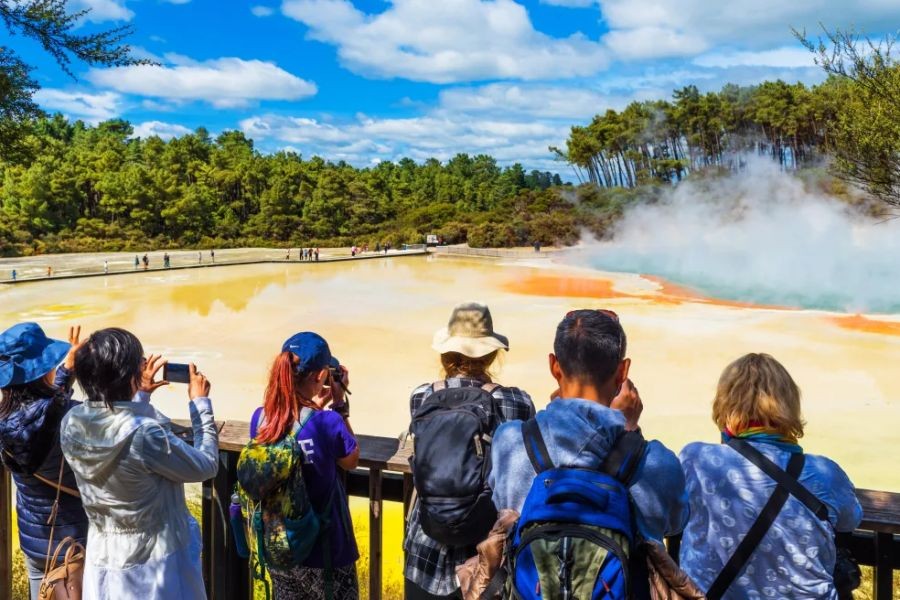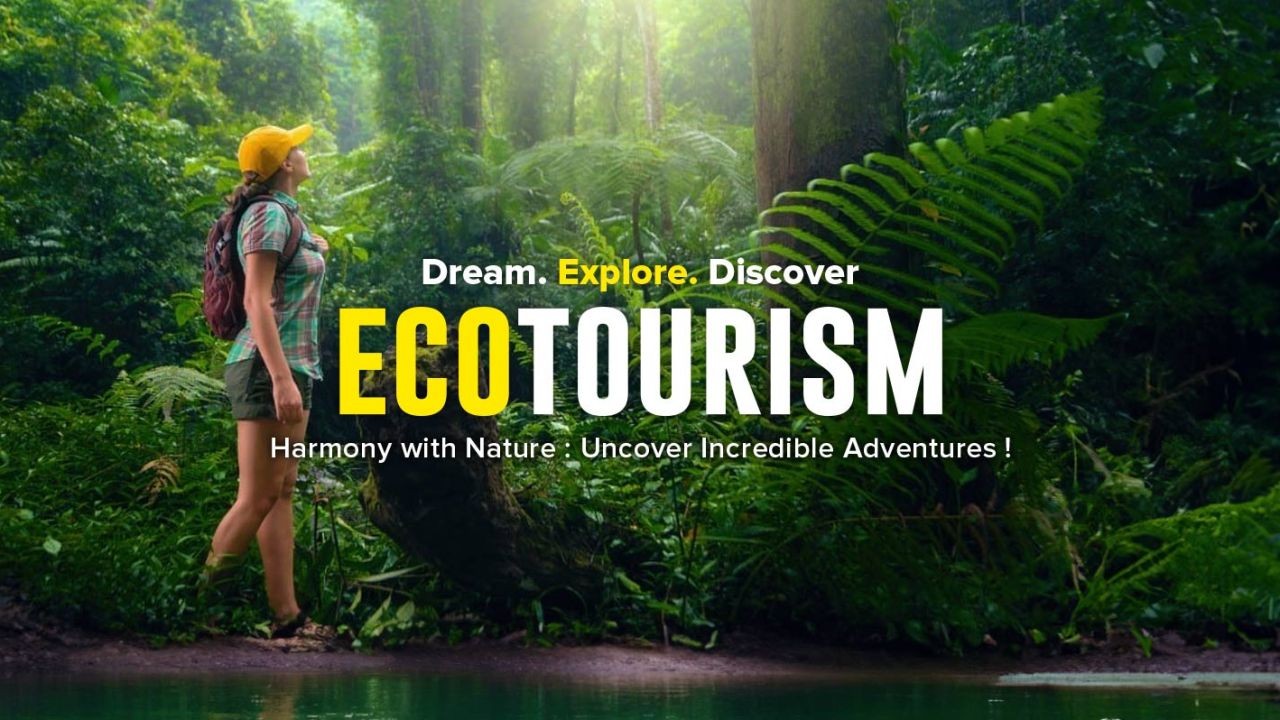New Zealand is renowned for its breathtaking landscapes, diverse ecosystems, and unique cultural heritage. However, the beauty that draws millions of visitors each year also poses significant environmental challenges. As the nation grapples with the impacts of climate change, the question arises: Can New Zealand’s tourism industry be truly sustainable? This article delves into the complexities of sustainable tourism within the Kiwi context, exploring the balance between economic growth and environmental stewardship.
🔍 Unique Expert Insights & Industry Deep Dive
New Zealand’s tourism industry is a vital component of its economy, accounting for approximately 5.8% of GDP and employing over 230,000 people, according to Stats NZ. However, the influx of tourists has led to increased pressure on natural resources and infrastructure. The country faces the challenge of managing this growth sustainably, ensuring that the environment remains protected for future generations.
One innovative approach gaining traction is the concept of regenerative tourism. Unlike sustainable tourism, which aims to minimize harm, regenerative tourism seeks to leave a positive impact on the environment and communities. In New Zealand, this involves initiatives such as predator-free sanctuaries and community-led conservation projects. These efforts not only protect the environment but also enhance the visitor experience, creating a deeper connection between tourists and the natural world.
📖 Real-World Case Studies
Case Study: Zealandia – Urban Eco-Sanctuary
Problem: Zealandia, an urban eco-sanctuary in Wellington, faced the challenge of balancing conservation efforts with increasing visitor numbers. The sanctuary aimed to restore native wildlife while providing an educational experience for tourists.
Action: To address this, Zealandia implemented a comprehensive visitor management strategy that included guided tours, educational programs, and strict visitor guidelines to minimize environmental impact. They also partnered with local communities to promote conservation awareness.
Result: Over a decade, Zealandia has seen a 50% increase in native bird populations and a significant rise in visitor satisfaction. The sanctuary's approach has become a model for urban conservation worldwide.
Takeaway: Zealandia demonstrates the potential of combining tourism with conservation efforts. New Zealand businesses can apply these principles to enhance sustainability and foster community engagement.
📊 Data-Driven Analysis
According to the Ministry of Business, Innovation and Employment (MBIE), international tourist arrivals in New Zealand are projected to reach 4 million by 2025. This growth presents both opportunities and challenges for sustainable tourism. The industry must adapt to increased demand while minimizing environmental impact.
One promising trend is the rise of eco-friendly accommodations. Data from Tourism New Zealand shows that 70% of visitors prefer environmentally responsible options. By investing in green technologies and sustainable practices, tourism operators can attract eco-conscious travelers and reduce their carbon footprint.
⚖️ Balanced Contrasting Viewpoints
Pros of Sustainable Tourism
- Economic Growth: Sustainable tourism boosts local economies by creating jobs and supporting small businesses.
- Environmental Preservation: It encourages the protection of natural resources and biodiversity.
- Cultural Enrichment: Sustainable practices foster cultural exchange and community involvement.
Cons of Sustainable Tourism
- High Implementation Costs: Transitioning to sustainable practices can be expensive for small operators.
- Regulatory Challenges: Navigating complex environmental regulations can be daunting.
- Limited Resources: Some regions may lack the infrastructure to support sustainable tourism initiatives.
🔥 Stronger Debate Angle & Contrasting Viewpoints
Advocate Perspective: Proponents argue that sustainable tourism is essential for preserving New Zealand's natural beauty and cultural heritage. They highlight successful initiatives like the Tiaki Promise, which encourages visitors to care for the land.
Critic Perspective: Critics contend that sustainable tourism can be restrictive and costly, limiting growth opportunities. They emphasize the need for balanced policies that support economic development while protecting the environment.
Middle Ground: A balanced approach involves government incentives for sustainable practices and collaboration between stakeholders to create mutually beneficial solutions.
🔮 Future Trends & Predictions
The future of New Zealand’s tourism industry lies in digital innovation and sustainable practices. By 2030, experts predict that virtual reality tours and AI-powered visitor management systems will enhance the tourism experience while reducing environmental impact. These technologies offer new ways to engage with visitors and monitor environmental health in real-time.
Moreover, the integration of Maori cultural experiences is expected to grow, providing unique insights into New Zealand’s heritage and fostering cultural understanding. As global awareness of sustainability increases, New Zealand’s commitment to eco-friendly tourism could position it as a leader in the global market.
🔹 Common Myths & Mistakes
Myth: Sustainable tourism is only for eco-conscious travelers.
Reality: Sustainable practices benefit all tourists by preserving destinations and enhancing the visitor experience (Source: Tourism New Zealand).
Myth: Sustainable tourism is too expensive for small businesses.
Reality: While initial costs may be high, long-term savings and increased visitor satisfaction often outweigh expenses.
Myth: Sustainability means limiting tourism growth.
Reality: Sustainable tourism promotes responsible growth, balancing economic and environmental priorities.
🔹 Conclusion
New Zealand’s tourism industry stands at a crossroads. Embracing sustainable practices offers a pathway to protect the environment while supporting economic growth. By leveraging innovative technologies and fostering community partnerships, New Zealand can ensure that its tourism industry remains vibrant and resilient.
What’s your take on sustainable tourism in New Zealand? Share your insights below!
🔍 People Also Ask (FAQ)
How does sustainable tourism impact New Zealand’s economy?
Sustainable tourism supports local economies by creating jobs and promoting small businesses. It enhances visitor experiences, leading to increased tourist satisfaction and repeat visits, which boosts economic growth.
What are the biggest misconceptions about sustainable tourism?
A common myth is that sustainable tourism is only for eco-conscious travelers. However, research shows it benefits all tourists by preserving destinations and enhancing experiences.
🔍 Related Search Queries
- Sustainable tourism strategies in New Zealand
- Environmental impact of tourism in New Zealand
- Regenerative tourism examples in New Zealand
- Eco-friendly accommodations in New Zealand
- New Zealand tourism industry trends 2025

































agustinneighbo
9 months ago